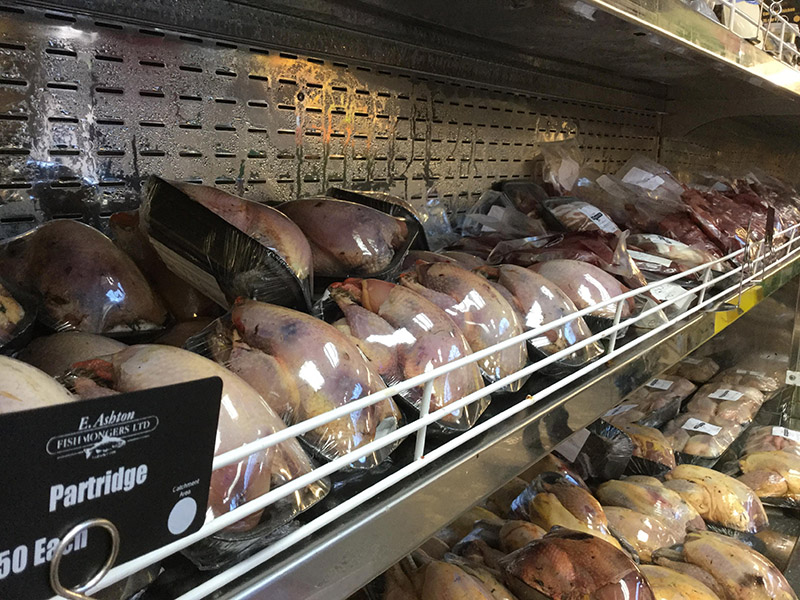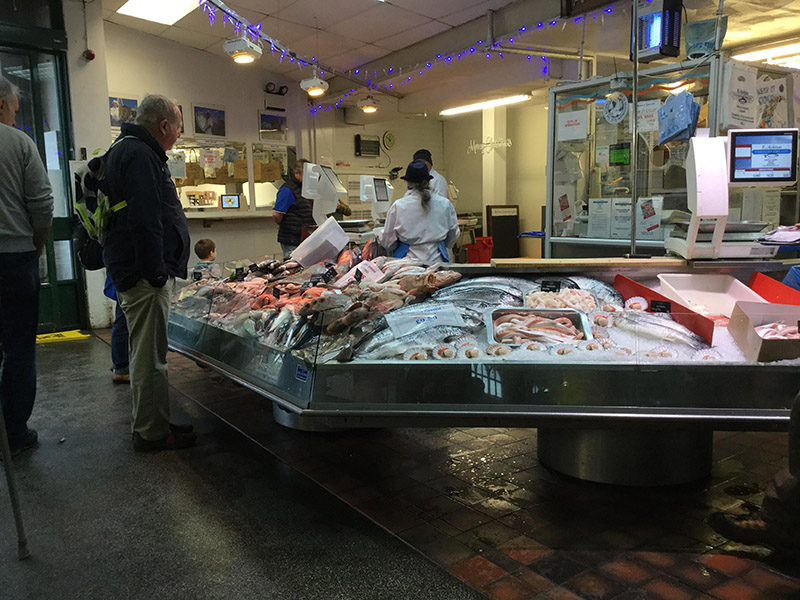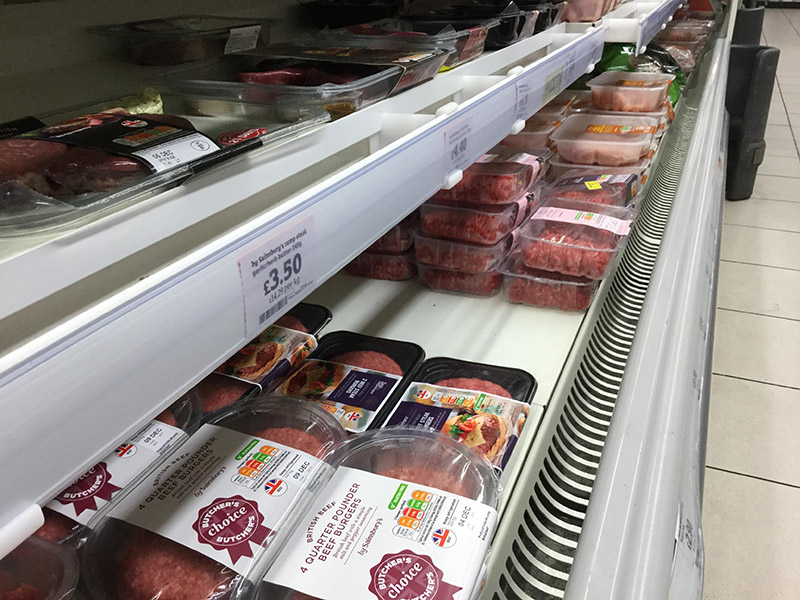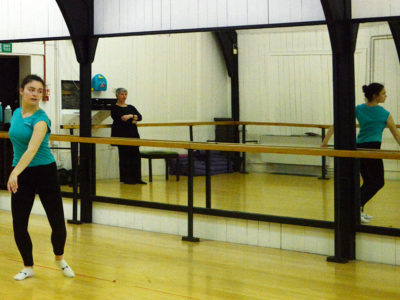How the Americans do it
Hunting in America is a different beast, for a number of reasons.
Aside from the limited gun control, greater variety of fauna and masses of untouched land, America’s hunting laws are very different.
Thanks to the US national parks system, hunters are permitted to use public land, provided they do so during the proper season.
This does not mean any animal is fair game.
To shoot an animal, a hunter must buy a tag, a licence that allows you to kill one of a specific species of animal. These are randomly distributed to all who apply if there are more hunters than tags, irrespective of wealth.
Tags vary in price and quantity each year based on how the populations and ecosystems are faring.
If mountain lions are scarce this year in California, no tags will be available. If there is a rampant wild boar problem in Texas, tags may be cheap and plentiful.
Tags are significantly cheaper for residents of the state in question than they are for non-residents.
A California resident can pay $30-40 for a deer, a non-resident $284.
A general hunting licence is also required per state: in Georgia, residents pay somewhere in the region of $15-40 a year. Non-residents pay $200-300.
These prices can be extortionate for those with the funds, but there are plenty of options for those without.
The US Fish and Wildlife Service lists several key objectives on its website, stressing its core values. Below are a two:
“Wildlife is a shared resource that must not be wasted. The law prohibits killing wildlife for frivolous reasons.
“In keeping with democratic principles, government allocates access to wildlife without regard for wealth, prestige, or land ownership.”
These statements highlight the differences between the American and British systems.
According to Statista’s 2017 data, 12.75% of Americans hunt or fish regularly. Similar data shows 0.9% of the British population as hunters. These UK hunting figures, from 1999, are the most up-to-date available.
Veganism is not the only option for those unhappy with factory-farming practices, and America may hold the answer

The best selection of game meat in central Cardiff is in the fishmongers in Cardiff Central Market
“I shoot pigeons,” says Michael Felmingham, a school site manager.
“Farmers’ fields get decimated; we manage the problem.
“Then we eat one of the leanest, healthiest birds you can get.”
He shoots as many as 200 in a day. “They don’t all go to waste,” Mick says.
Some go to restaurants in Europe. He and his dog eat some.
Real food has become a luxury
Organic produce can cost three times more than non-organic. Some families even struggle to afford the latter.
Wales has a particular problem. “Food deserts” are poorer areas where newsagents and takeaways dominate the market, making it difficult to find fresh produce. Cardiff’s are some of the worst.
There have been deficiency-related infant deaths.
Children are reminded to eat their five-a-day, but meat rarely enters the conversation. Yet non-organic meat, full of antibiotics and hormones, presents greater health problems than non-organic fruit and vegetables.
Furthermore, price hikes for organic meat are usually substantially greater than those for organic fruit and vegetables.
Meat has been demonised since the growth of veganism.
Touted as a healthy, ethical and environmentally sound alternative to the omnivore diet, veganism too can lead to deadly deficiencies.
Health-wise, a herbivorous diet is difficult. To replace lost iron, zinc, calcium, omega-3 fatty acids, and B and D vitamins, vegans typically take scientifically questionable supplements.
This is why the recently proposed red meat tax is concerning for poorer families.
“People are very naive. When I say I’m going pigeon shooting, I ask if people would like to try some. They say ‘no.’”
The University of Oxford and the International Food Policy Research Institute conducted widely discussed research on the benefits of such a tax.
Yet eating meat is not a bad habit to be given up, like tobacco. For some – like anemics – it is nutritional gold.
Real meat
So if meat is both healthy and unhealthy, how to mitigate the unwanted side effects?
Enter wild game meat.
These animals are as free-range as it gets, wild from birth to death. When shot, properly hunted animals die more humanely than any factory-farmed animal.
Mick iterates, “People are very naive. When I say I’m going pigeon shooting, I ask if people would like to try some. They say ‘no.’”
Though Mick thinks people are put off by the association with street pigeons, they more likely take issue with hunting.

Who would have thought a fishmongers would have the best selection of game in Cardiff?
Fox hunting involves cruel pursuit and a grizzly death. The animal is not eaten.
Deer die quickly, shot by an undetected hunter, and are eaten.
According to poll data, 2% more Britons agree with the former.
Now compare the 87% who disagree with hunting deer, to the 21% who are reportedly vegetarian or vegan. It leaves 66% of the country who eat meat, yet disagree with hunting deer.
General misinformation and cartoons like Bambi have created the idea that only certain animals are suitable for food. Cows, yes; horses, no. Pigs, why not? Rabbits, definitely not.
This has created a society who eat caged animals before wild ones.
Furthermore, because Britain has no large predators, deer overpopulate, cause 74,000 yearly road accidents, and starve. Even the British Deer Society agree with culling.
“350,000 deer are culled each year,” says Countryfile.
What happens to the meat?
Estimates vary, but a lot either goes to waste, or is bought by foreign restaurants. Recent talk of a growing venison market refers mostly to farmed venison.

Supermarkets are almost entirely devoid of wild game meat
So why are we not all eating wild game?
Nature cannot provide enough wild game to match current meat consumption. The 350,000 deer culled do not match the two million cows slaughtered annually.
But is there even a tenth as much venison in supermarkets as there is beef? Is partridge ever available outside of high-end restaurants and butchers?
“They eat pigeon in France,” says Mick. “They realise that it’s good to eat.”
Most of the world has no problem with game. It is a British complex.
In fact, it is a British middle- and working-class complex.
The law
Consider the image of a British hunter versus an American hunter.
Only one wears tweed and rides a horse. This is because of British law.
The most difficult part of shooting in Britain, says Mick, is finding somewhere to shoot.
By law, hunting must take place on private land, with the permission of the landowner.
Unsurprisingly, shooting squirrels in your back garden will earn you a visit from the local bobby and odd looks from the neighbours.
So you or a friend must own a vast portion of land. The only alternative: guided hunts. These start at around £200 per day and quickly go into the thousands.

Zizzis might be the only ‘budget’ chain restaurant to have even one game option available
Could everyone hunt?
Mick cannot see a world in which everyone could hunt. A law change is unlikely, and without that what options do people have?
“How can they?” he asks. “You can’t just go on farmers’ land.”
He admits, “It’s a difficult situation.”
If the law were to change, there would be stumbling blocks like gun control and wildlife populations.
However, real food should not be a rich man’s luxury.
Thomas of BGA describes the Country Food Trust. “Shoots donate their game to food banks,” he explains.
They aim to feed 75,000 people this winter, and have various donation options. One of their partners is the Salvation Army Cardiff.
The Country Food Trust may not empower poorer people to hunt their own food, but it is a start. It gives hunters a way to put their hobby to charitable use.
How the Americans do it
Hunting in America is a different beast, for a number of reasons.
Aside from the limited gun control, greater variety of fauna and masses of untouched land, America’s hunting laws are very different.
Thanks to the US national parks system, hunters are permitted to use public land, provided they do so during the proper season.
This does not mean any animal is fair game.
To shoot an animal, a hunter must buy a tag, a licence that allows you to kill one of a specific species of animal. These are randomly distributed to all who apply if there are more hunters than tags, irrespective of wealth.
Tags vary in price and quantity each year based on how the populations and ecosystems are faring.
If mountain lions are scarce this year in California, no tags will be available. If there is a rampant wild boar problem in Texas, tags may be cheap and plentiful.
Tags are significantly cheaper for residents of the state in question than they are for non-residents.
A California resident can pay $30-40 for a deer, a non-resident $284.
A general hunting licence is also required per state: in Georgia, residents pay somewhere in the region of $15-40 a year. Non-residents pay $200-300.
These prices can be extortionate for those with the funds, but there are plenty of options for those without.
The US Fish and Wildlife Service lists several key objectives on its website, stressing its core values. Below are a two:
“Wildlife is a shared resource that must not be wasted. The law prohibits killing wildlife for frivolous reasons.
“In keeping with democratic principles, government allocates access to wildlife without regard for wealth, prestige, or land ownership.”
These statements highlight the differences between the American and British systems.
According to Statista’s 2017 data, 12.75% of Americans hunt or fish regularly. Similar data shows 0.9% of the British population as hunters. These UK hunting figures, from 1999, are the most up-to-date available.





